































Airlines, Airports and Airliners 7 February 2024
Google Banner Ad
This week in Airlines, Airliners and Airports
Regarding the Collision Accident between Japan Airlines Flight 516 and a Japan Coast Guard Aircraft
FAA halts Boeing MAX production expansion to improve quality control, also lays out extensive inspection and maintenance process to allow Boeing 737-9 MAX aircraft to return to service.
RwandAir latest airline in Africa to sign IATA Safety Leadership Charter.
Air cargo demand surges 10.8% in December, Closing 2023 near 2022 levels.
ICAO - Over 500 new air service agreements signed.
Airbus, Avinor, SAS, Swedavia and Vattenfall pave the way for hydrogen aviation in Sweden and Norway.
Rolls-Royce announces Turkish Airlines will become largest operator of Trent XWB engines as Türkiye's national airline selects 70 Airbus A350 aircraft.
SLC International Airport reports record passengers for 2023.
Worldwide Incidents and accidents.
Bonus video - Wavecrest Flying Stopover


BOEING CEO TO EMPLOYEES: 'INCREASED SCRUTINY WILL MAKE US BETTER'
Boeing President and CEO Dave Calhoun shared the following message with all employees today, as the company reported year-end 2023 results:
Team,
While we report our fourth-quarter and full-year 2023 results today, my focus remains on the Alaska Airlines Flight 1282 accident and the actions we are taking as a company to strengthen quality at Boeing.

We've taken significant steps over the last several years to strengthen our safety and quality processes, but this accident makes it absolutely clear that we have more work to do. To that end, we have announced immediate and comprehensive actions to strengthen quality across our commercial airplanes programs and within our supply chain. In addition, our regulator has shared significant new actions to increase their oversight - which we will fully and transparently support.
This increased scrutiny - whether from ourselves, from our regulator, or from others - will make us better. As we move forward together, I ask all teammates to use their voices to speak up as we continue to focus on every detail through the lens of safety and quality first.
Our people on the factory floor know what we must do to improve better than anyone. We should all seek their feedback, understand how to help and always encourage any team member who raises issues that need to be addressed. We will go slow, we will not rush the system and we will take our time to do it right.
While we often use this time of year to share or update our financial and operational objectives, now is not the time for that. We will simply focus on every next airplane while doing everything possible to support our customers, follow the lead of our regulator and ensure the highest standard of safety and quality in all that we do. Ultimately - that is what will drive our performance.
As we go about that work, I want to be clear that we still have every confidence in our recovery. I have confidence in you and I have confidence in Boeing. We have a serious challenge in front of us - but I know this team is up to the task.
Thank you,
Dave

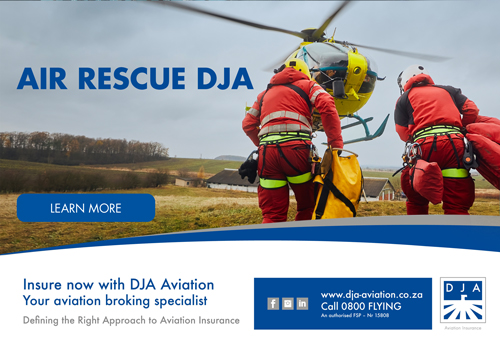
REGARDING THE COLLISION ACCIDENT BETWEEN JAPAN AIRLINES FLIGHT 516 AND A JAPAN COAST GUARD AIRCRAFT (FINAL REPORT)
In regard to the collision accident that occurred at Haneda Airport on 2 January 2024, new injuries have been confirmed for our customers.
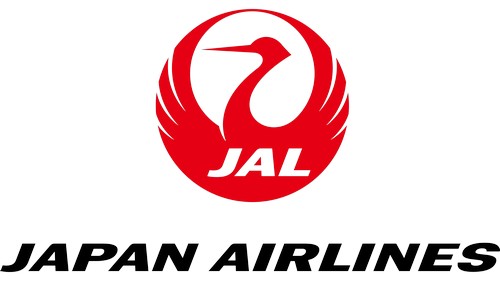
Departure: New Chitose Airport - Scheduled departure time: 15:50 - Actual departure time: 16:15
Arrival: Haneda Airport - Scheduled arrival time: 17:35 - Actual landing time: 17:47
Number of Passengers: 359 adults + 8 infants = 367 in total
Number of Crew: 3 cockpit crew members + 9 cabin crew members = 12 in total
Passenger Situation: Injury (by medical certificate, etc.) :1 person with rib fracture (crack), 1 person with shin bone contusion, 1 person with sprain, 1 person with bruising. Physical condition decline (Visited a medical facility on the day): 12 people.
Aircraft Type and Registration: Airbus A350-900, Registration Number JA13XJ. Aircraft Condition: Total loss.
Summary:
After departing from New Chitose Airport at 16:15 on January 2, the aircraft flew smoothly (*1), and after landing at Haneda Airport Runway C at 17:47 (*2), the aircraft collided with a Japan Coast Guard aircraft and caught fire. All passengers and crew members on our flight successfully performed an emergency evacuation (*3). Support is being provided to each passenger in terms of their condition and assistance for their return home.
(*1) The aircraft did not experience any issues or irregularities during its departure from New Chitose Airport or throughout the flight.
(*2) According to interviews with the operating crew, they acknowledged and repeated the landing permission from air traffic control, and then proceeded with the approach and landing procedures.
(*3) The aircraft's announcement system malfunctioned during the evacuation, so cabin crew members conducted instructions using a megaphone and their voices. Cabin crew members determined safe exits for evacuation, and all passengers and crew members evacuated through three emergency exits.

FAA HALTS BOEING MAX PRODUCTION EXPANSION TO IMPROVE QUALITY CONTROL, ALSO LAYS OUT EXTENSIVE INSPECTION AND MAINTENANCE PROCESS TO ALLOW BOEING 737-9 MAX AIRCRAFT TO RETURN TO SERVICE
The 5 January Boeing 737-9 MAX incident must never happen again. Accordingly, the Federal Aviation Administration (FAA) is announcing additional actions to ensure every aircraft is safe. The FAA today informed Boeing it will not grant any production expansion of the MAX, including the 737-9 MAX.
"However, let me be clear: This won't be back to business as usual for Boeing. We will not agree to any request from Boeing for an expansion in production or approve additional production lines for the 737 MAX until we are satisfied that the quality control issues uncovered during this process are resolved."
The FAA approved this detailed set of inspection and maintenance instructions after a thorough review of data from 40 inspections of grounded planes. The FAA also convened a Corrective Action Review Board (CARB). The CARB, made up of safety experts, scrutinized and approved the inspection and maintenance process.
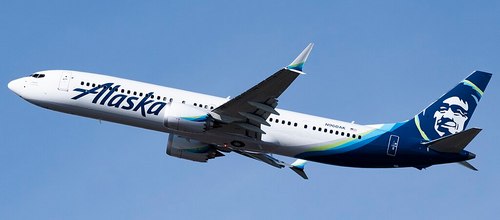
The enhanced maintenance process will require: An inspection of specific bolts, guide tracks and fittings. Detailed visual inspections of left and right mid-cabin exit door plugs and dozens of associated components. Retorquing fasteners. Correcting any damage or abnormal conditions
FAA ACTIONS TO HOLD BOEING ACCOUNTABLE TO THE HIGHEST STANDARD OF SAFETY:
After grounding the Boeing 737-9 MAX aircraft in early January, the FAA has laid out a series of actions to increase oversight of Boeing's production lines.
"The quality assurance issues we have seen are unacceptable," said Whitaker. "That is why we will have more boots on the ground closely scrutinizing and monitoring production and manufacturing activities."
Increased oversight activities include: Capping expanded production of new Boeing 737 MAX aircraft to ensure accountability and full compliance with required quality control procedures. Launching an investigation scrutinizing Boeing's compliance with manufacturing requirements. The FAA will use the full extent of its enforcement authority to ensure the company is held accountable for any non-compliance. Aggressively expanding oversight of new aircraft with increased floor presence at all Boeing facilities. Closely monitoring data to identify risk.Launching an analysis of potential safety-focused reforms around quality control and delegation.
The FAA will continue to support the National Transportation Safety Board's (NTSB) investigation into Alaska Airlines Flight 1282. The NTSB is in charge of the investigation and will provide any updates.
In early 2023, the FAA convened 24 experts to review Boeing's safety management processes and how they affect Boeing's safety culture. The FAA expects the report within weeks. The results of the Boeing Safety Culture Review report will also inform the agency regarding future action. The review panel included representatives from NASA, the FAA, labor unions, independent engineering experts, air carriers, manufacturers with delegated authority, legal experts and others. The panel has been reviewing thousands of documents, interviewed more than 250 Boeing employees, managers, and executives, Boeing supplier employees, and FAA employees and visited several Boeing sites as well as Spirit AeroSystems' facility in Wichita.

RWANDAIR LATEST AIRLINE IN AFRICA TO SIGN IATA SAFETY LEADERSHIP CHARTER
The International Air Transport Association (IATA) announced that RwandAir has become the latest signatory in Africa to the IATA Safety Leadership Charter. The Charter is aimed at strengthening organizational safety culture, which is an area of focus in IATA's Collaborative Aviation Safety Improvement Program (CASIP), under Focus Africa.
"At RwandAir, safety is not just a priority but a fundamental principle guiding our operations. Our organizational culture is deeply rooted in robust safety practices, making it the cornerstone of our operational integrity. By signing the IATA Safety Leadership Charter, we are not only reaffirming our unwavering commitment to a culture of safety but also recognizing the imperative to continuously build on the work that has gone before," said Yvonne Makolo, CEO of RwandAir.
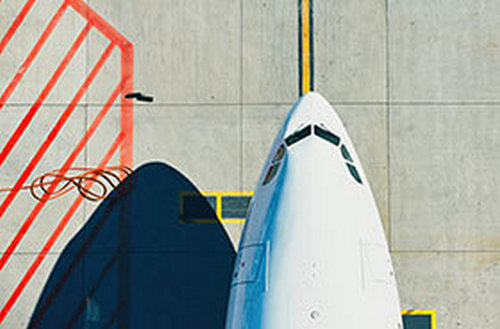
The IATA Safety Leadership Charter was developed in consultation with IATA members and the wider aviation community to support industry executives in continuing evolving a positive safety culture within their organizations.
Safety Leadership guiding principles include: Leading the obligation to safety through both words and actions. Fostering safety awareness among employees, the leadership team, and the board. Creating an atmosphere of trust, where all employees feel responsible for safety and are encouraged and expected to report safety-related information. Guiding the integration of safety into business strategies, processes, and performance measures and creating the internal capacity to manage and achieve organizational safety goals. Regularly assessing and improving organizational safety culture.
Safety leaders from more than 40 airlines are the first signatories. RwandAir is the second carrier in Africa to sign, following Ethiopian Airlines who made the commitment at the launch of the Safety Leadership Charter in September 2023.


The International Air Transport Association (IATA) released data for global air freight markets showing that air cargo demand rebounded in 2023 with a particularly strong fourth quarter performance despite economic uncertainties. Full-year demand reached a level just slightly below 2022 and 2019.
Global full-year demand in 2023, measured in cargo tonne-kilometres (CTKs), was down 1.9% compared to 2022 (-2.2% for international operations). Compared to 2019, it was down 3.6% (-3.8 for international operations).
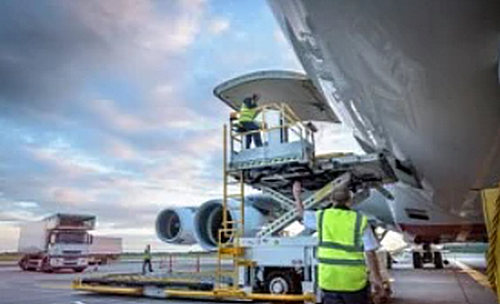
December 2023 saw an exceptionally strong performance: global demand was 10.8% above 2022 levels (+11.5% for international operations). This was the strongest annual growth performance over the past two years. Global capacity was 13.6% above 2022 levels (+14.1% for international operations).
Some indicators to note include: Global cross-border trade recorded growth for the third consecutive month in October, reversing its previous downward trend. December inflation in both the United States and the EU as measured by the corresponding Consumer Price Indices (CPI) stayed below 3.5% year-on-year. China's CPI, however, indicated deflation for the third consecutive month, raising concerns of an economic slowdown.
Both the manufacturing output and new export order Purchasing Managers Indexes (PMIs) - two leading indicators of global air cargo demand-continued to hover below the 50-mark in December, usual markers for contraction.
"Despite political and economic challenges, 2023 saw air cargo markets regain ground lost in 2022 after the extraordinary COVID peak in 2021. Although full year demand was shy of pre-COVID levels by 3.6%, the significant strengthening in the last quarter is a sign that markets are stabilizing towards more normal demand patterns. That puts the industry on very solid ground for success in 2024. But with continued, and in some cases intensifying, instability in geopolitics and economic forces, little should be taken for granted in the months ahead," said Willie Walsh, IATA's Director General.
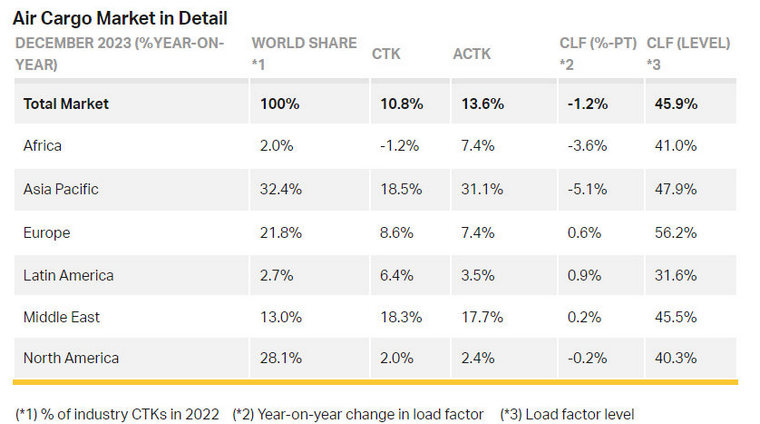
December Regional Performance (Total Market)
Asia-Pacific airlines posted a 0.9% increase in demand in 2023 compared to 2022 (-1.4% for international operations) and a capacity increase of 28.5% (+16.6% for international operations). In December, airlines in the region recorded the best performance of all regions, posting an 18.5% increase in demand (+15.4% for international operations) compared to 2022. Capacity increased 31.1% (+22.9% for international operations) during the same period.
North American carriers reported the worst year-on-year performance of all regions, with a 5.7% decrease in demand in 2023 compared to 2022 (-4.3% for international operations) and a capacity increase of 0.3% (+2.7% for international operations). In December airlines in the region reported a 2.0% decrease in demand (+5.9% international operations), compared to 2022. Capacity increased 2.4% (+8.5% for international operations) during the same period.
European carriers posted a 3.9% decrease in demand in 2023 compared to 2022 (-4.1% for international operations). During the same period, airlines posted a capacity increase of 4.5% for both global and international operations. In December, airlines in the region posted an 8.6% increase in demand (+8.7% for international operations) compared to 2022. Capacity increased 7.4% (+7.5% for international operations) during the same period. Airlines in the region continued to be most affected by the war in Ukraine.
Middle Eastern carriers reported an increase in demand of 1.6% for global and international demand in 2023 compared to 2022 and an increase in capacity of 13.5% (+13.6% for international operations). In December airlines in the region posted an 18.3% increase in demand for both global and international operations compared to 2022. Capacity increased 17.7% (+17.8% for international operations) during the same period.
Latin American carriers posted the strongest year-on-year performance of all regions, with a 2.0% increase in demand in 2023 compared to 2022 (+1.9% for international operations). During the same period, airlines posted a capacity increase of 13.2% (+16.9% for international operations). In December airlines in the region posted growth in demand of 6.4% (+6.3% for international operations) compared to 2022. Capacity grew 3.5% (+4.2% for international operations) during the same period.
African airlines reported a decrease in demand of 1.8% (-2.0% for international demand) in 2023 compared to 2022 and an increase in capacity of 5.6% (+5.0% for international operations). In December airlines in the region posted the weakest performance of all with a 1.2% decrease in demand (-1.4% for international operations) compared to 2022. Capacity grew 7.4% (+6.8% for international operations) during the same period.
Red Sea Disruption
In November and December air cargo experienced a modest rise in demand and yields due to disruptions in the Red Sea*. The following was observed when comparing data for the week commencing 4 November 2023 and the week ending 9 December 2023: a 1% increase in global air cargo demand coupled with a 5% rise in yields; in the Asia-Pacific region, demand grew by 2% and yields by 6%; a 1% increase in demand between China and the rest of the world and an 11% increase in yields; Europe's demand remained steady, but yields increased by 3%; in the Middle East, demand was constant with a 4% rise in yields.
Data for the last half of December showed a normalization of demand and yields.
"The recent disruption to maritime routes in the Red Sea has seen some shippers pivot to air cargo. The increased demand saw a spike in air cargo yields on related trade lanes. A similar spike is expected in January as disruptions intensified. While not all cargo is suitable for air transport, it is a vital option for some of the most urgent shipments in extraordinary circumstances. And that is critical to the continuity of the global economy, said Walsh.

The International Civil Aviation Organization (ICAO) is announcing today that 521 new international air service agreements have resulted from its most recent Air Services Negotiation (ICAN) event, which was attended by over 700 participants representing 97 countries.
In recognition of aviation's crucial role as a catalyst for sustainable development worldwide, the ICAN series was launched in 2008 to facilitate the initiation or renegotiation of the bilateral and multilateral State agreements that form the regulatory foundation of the modern civil aviation network.

Priorities include commitments to convergent and effective regulatory practices supported by good governance, and recognition of the need for modernized infrastructure and passenger facilitation processes. Those commitments will continue to support safety, security, environmental sustainability, capacity, and resilience objectives, as well as the implementation of effective national competition and consumer protection frameworks, and full compliance with current ICAO policy guidance on taxes, charges, and fees.
Aspirational goals agreed by governments towards the decarbonization of air transport by 2050 support the expansion of air service agreements associated with these environmental engagements. This is further supported by initiatives led by ICAO to support the development and implementation of the technologies, operational improvements, and cleaner aviation fuels that decarbonization requires.
This latest edition of ICAN took place in Riyadh from 3 to 7 December 2023.


Airbus, Avinor, SAS, Swedavia and Vattenfall have signed a Memorandum of Understanding (MoU) to investigate the feasibility of a hydrogen infrastructure at airports in Sweden and Norway.
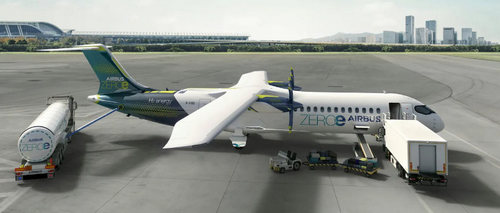
"Hydrogen stands out as a key enabler as we pioneer a sustainable aviation future." said Guillaume Faury, CEO Airbus "Norway and Sweden are among the most demanding regions for aviation and have great potential for hydrogen production from renewable energy sources. I am very pleased to enter into this cooperation with partners fully engaged to take significant steps towards decarbonising aerospace. It fits perfectly with our strategy of deploying hydrogen aviation ecosystems in the most suitable parts of the world."
Abraham Foss, CEO Avinor: "Hydrogen is emerging as a key energy carrier in future fossil free aviation. As the owner and operator of 43 airports across Norway, Avinor has been working on sustainability for many years already, and has taken a position as a driving force and facilitator for the green transition of Norwegian aviation. Our dialogue with Airbus concerning the decarbonization of aviation goes several years back and we are very happy to be able to announce this collaboration together with our good neighbours in Sweden. Norway, as well as Sweden, is well positioned to be an early mover in the introduction of hydrogen-powered aircraft. We look forward to contributing with our expertise as well as infrastructure to bring this important work forward."
"As the world takes positive steps towards a more sustainable future, SAS' commitment is to ensure that also coming generations can enjoy the benefits of seamless global connectivity.
By partnering with some of the strongest and most innovative players in the industry, we are assuming our responsibility to drive the transition towards achieving net-zero emissions. A journey that matters not just for SAS, but for the entire aviation industry," says SAS' President & CEO Anko van der Werff.
"We are very excited to be part of a larger partnership on the role of hydrogen in aviation together with Airbus, Avinor, SAS and Vattenfall. Swedavia, Avinor and SAS already have established successful collaborations in fossil-free aviation, and it is therefore exciting that Airbus, with its extensive knowledge of hydrogen-powered aircraft through its ZEROe initiative, and Vattenfall, with its expertise in electricity and energy production, are joining us in a more in-depth collaboration. Hydrogen is expected to gradually become an increasing part of the aviation industry's fuel mix in the future and will therefore have an increasing effect on the infrastructure and planning of our airports. This partnership is a major and important step towards fossil-free aviation in the Nordic region and will further strengthen Swedavia's role as a front-runner in fossil-free aviation, while at the same time taking another important step in the transition within the aviation industry," says Jonas Abrahamsson, Swedavia's president and CEO.
" We want to enable industry decarbonization. Aviation is a hard to abate industry where breaking away from fossil fuels is a huge challenge today. This cross-border collaboration however demonstrates the willingness to bring about change. We look forward to contributing with expertise in electricity market development, electrical infrastructure, and hydrogen production in Sweden", said Anna Borg, President and CEO, Vattenfall.
The use of hydrogen to power future aircraft is not only expected to significantly reduce aircraft emissions in the air, but could also help decarbonise air transport activities on the ground. In 2020, Airbus unveiled the first ZEROe concept with the ambition to bring to market the world's first hydrogen-powered commercial aircraft by 2035. The development of the corresponding technology bricks is now underway in a global Research & Technology network.
Airbus also launched the "Hydrogen Hub at Airports" programme to jumpstart research into infrastructure requirements and low-carbon airport operations, across the entire value chain. To date agreements have been signed with partners and airports in ten countries including France, Germany, Italy, Japan, New Zealand, Norway, Singapore, South Korea, Sweden and the United Kingdom.
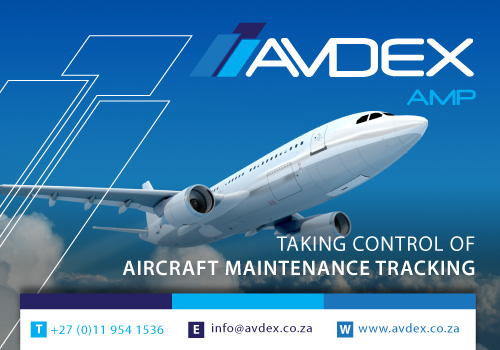

Rolls-Royce (LSE: RR., ADR: RYCEY) today announces Turkish Airlines will order 100 Trent XWB-84 engines and 40 Rolls-Royce Trent XWB-97 engines. This will make Turkish Airlines the world's largest operator of Trent XWB engines.

Flying to more than 340 destinations in Europe, Asia, Africa and the Americas, Turkish Airlines has grown from a passenger base of 10 million in 2003 to more than 82 million in the last twelve months.
This substantial order will complement the airline's existing fleet, adding to the 40 Rolls-Royce Trent XWB-84 A350-900s already in service and on order, and 26 Trent 700 powered A330s

SLC INTERNATIONAL AIRPORT REPORTS RECORD PASSENGERS FOR 2023
From 1 January through 31 December 2023, the airport recorded 26,952,754 passengers. This surpasses the previous record of 26,808,014 passengers in 2019. The growth can be attributed primarily to an increase in the number of international passengers. The number of domestic passengers in 2023 totalled 25,629,460, compared to the previous high in 2019 of 25,692,153. While the number of international passengers reached a new record of 1,323,294 in 2023, compared to 1,115,861 in 2019.
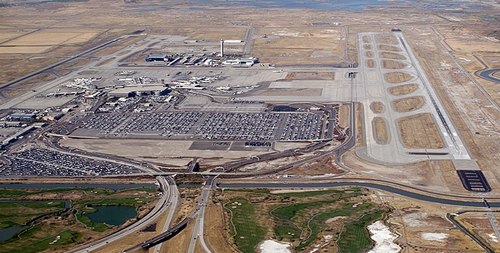
Delta Air Lines currently offers nonstop European service between SLC and Amsterdam, London and Paris. Delta's and Aeromexico's flights to Mexican destinations have performed exceptionally well especially during the pandemic. In addition, KLM provides seasonal nonstop service from SLC to Amsterdam, while Discover provided seasonal nonstop service to Frankfurt in 2022 and 2023.
The former SLC airport, which closed in fall 2020, was built to accommodate 10 million passengers and was operating at nearly three times its capacity in 2019. The New SLC Airport is designed to accommodate 34 million passengers at the full build out of Phase 4, which is anticipated to open in late 2026.
SLC is the 21st busiest airport in the United.


Lithuania, Vilnius Airport (VNO/EYVI): An Avion Express Airbus A320-232, suffered a temporary runway excursion during landing on runway 19 at Vilnius Airport (VNO). ADS-B data show the aircraft drifting to the right during rollout. It entered the grass, crossed taxiway D before returning to the runway after about 450 meters. The aircraft proceeded to taxi to the apron.
Canada, near Edmonton International Airport, AB (YEG/CYEG): A WestJet Encore DHC-8-402Q, was climbing through 10 000 feet when the flight crew heard a bang, and observed a right DC generator light and abnormal torque indications from the right-hand engine. The crew actioned the quick reference handbook and shut down the number 2 engine (Pratt and Whitney Canada PW150A). ATC provided vectors for a return to CYEG. The aircraft conducted a single- engine approach and landed without further incident. Emergency vehicles met the aircraft on the runway and the aircraft subsequently taxied to the gate under its own power. Subsequent inspection from company maintenance revealed that the number 2 engine second stage Low Pressure Compressor (LPC2) had failed.
USA, Kahului Airport, HI (OGG/PHOG): An American Airlines Airbus A321-253NX, made a hard landing on runway 20 at Kahului Airport, HI (OGG). One passenger and five flight attendants were hospitalized for minor injuries and later released.
Canada, near Toronto-Pearson International Airport, ON (YYZ/CYYZ): A Air Canada Rouge Airbus A319-114, was climbing through 8500 feet ASL when the cabin crew advised the flight crew of an abnormal odour in the cabin. The aircraft levelled at 10 000 feet ASL, advised ATC and proceeded with the QRH procedures. The flight crew did not declare a PAN PAN or a MAYDAY; the aircraft returned to CYYZ for an overweight landing. The landing was uneventful, and after ARFF completed an external inspection, the aircraft taxied to the gate. Maintenance reported the source of the odour was a contaminated filter element in the Air Cycle Machine #2 and replaced the filter. The aircraft resumed regular service on 30 January 2024.

Wavecrest Flying Stopover

Google Banner Ad
 |
 |
 Copyright © 2024 Pilot's Post PTY Ltd
The information, views and opinions by the authors contributing to Pilots Post are not necessarily those of the editor or other writers at Pilots Post.
Copyright © 2024 Pilot's Post PTY Ltd
The information, views and opinions by the authors contributing to Pilots Post are not necessarily those of the editor or other writers at Pilots Post.